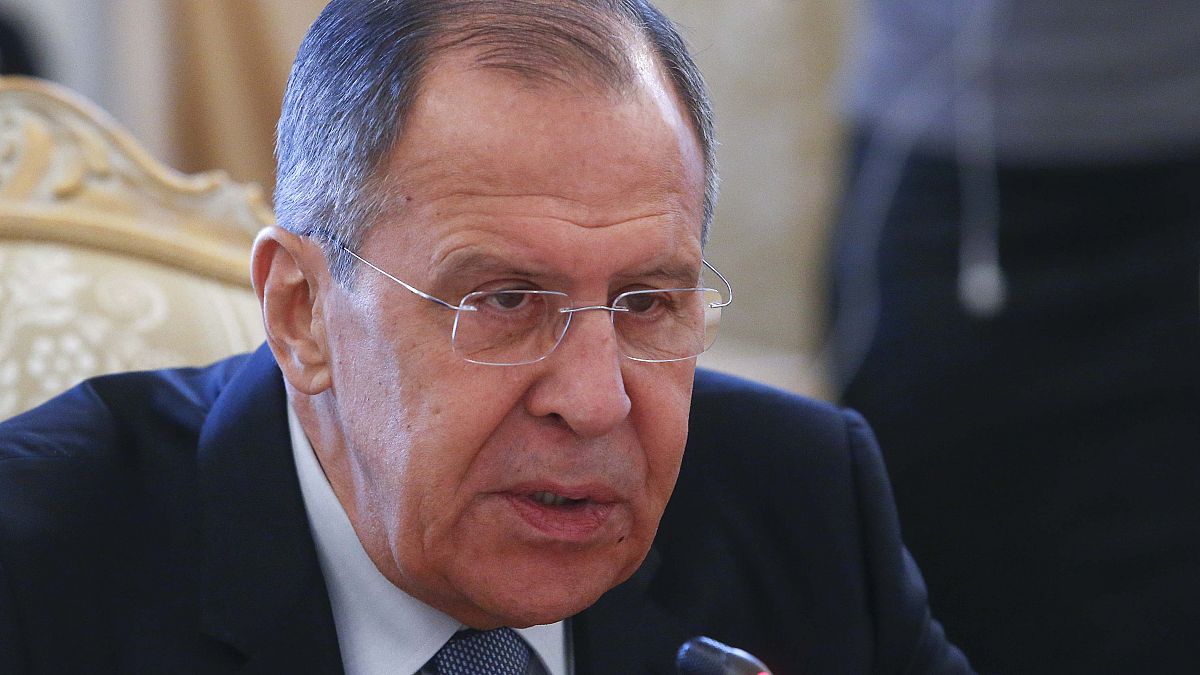Russia's Foreign Minister said the nerve agent attack could benefit both the British special services and the UK government.
Russian Foreign Minister Sergei Lavrov has accused the United Kingdom and its allies of "playing children's games" in relation to the poisoning of a former double agent and his daughter in England last month.
Sergei Skripal, 66, and his 33-year-old daughter Yulia Skripal are believed to have been exposed to the deadly nerve agent Novichok in their home town of Salisbury.
Twenty-nine nations have expelled Russian diplomats in response to the attack, which they blame Russia for committing.
The Kremlin has responded with sanctions against Britain and has recalled several of its own ambassadors.
"Many speak of the situation being worse than it was in the classic Cold War because there were some rules, some proprieties were observed," the foreign minister said.
The Kremlin has denied any involvement, and has criticised the UK for failing to provide evidence proving its case.
"There are other explanations (for the Skripal poisoning apart from the Kremlin order). The experts are speaking about them," said Lavrov.
"They say it may well be beneficial for the British special services who are known for their ability to act with a license to kill. This may also be beneficial for the British government which obviously found itself in an uneasy situation when they did not fulfill their promises to their electorate on the conditions of Brexit."
Sergei Skripal remains in a critical but stable condition in hospital.
British authorities say his daughter is conscious and talking.
'Questions without answers'
His comments came as the Russian Embassy in London issued a series of 14 "questions without answers" about Skripal on Twitter, including whether the UK had ever produced the Novichok nerve agent, and on what grounds France was involved in the investigation. Euronews' attempts to answer some of those questions are below.
1. Why has Russia been denied access to the two Russian nationals?
Britain's Prime Minister Theresa May has previously said there was “no alternative conclusion other than that the Russian State was culpable” in the attack. So, given the Brits' firmly-held belief that the Kremlin instigated the poisoning, it is unsurprising that UK authorities would rather they remained at a safe distance from the Skripals.
2. What specific antidotes were administered to Mr and Ms Skripal, and in which form?
While doctors have not divulged details behind Yulia Skripal's "rapid recovery", antidotes that can treat novichok poisoning do exist, such as atropine, pralidoxime and diazepam. Atropine can be supplied intravenously or by injection into a muscle with Pralidoxime. Diazepam may also be applied via a needle.
However, novichok's potency — it is eight times stronger than VX — is such that it could still cause permanent injury despite antidote treatment, which needs to be applied quickly for maximum effect.
3. On what grounds has France been involved in the investigation?
Neither the British or French authorities have publicly confirmed that they are collaborating in the investigation, so it is interesting that eight out of the 14 questions asked concerned France. In fact, Paris avoided taking a firm stance against Moscow in the first few weeks, telling a news conference: "We don't do fantasy politics. Once the elements are proven, then the time will come for decisions to be made."
However, foreign ministry spokeswoman Agnes Von der Muhll did say at the time that the two countries were in close contact on the issue.
